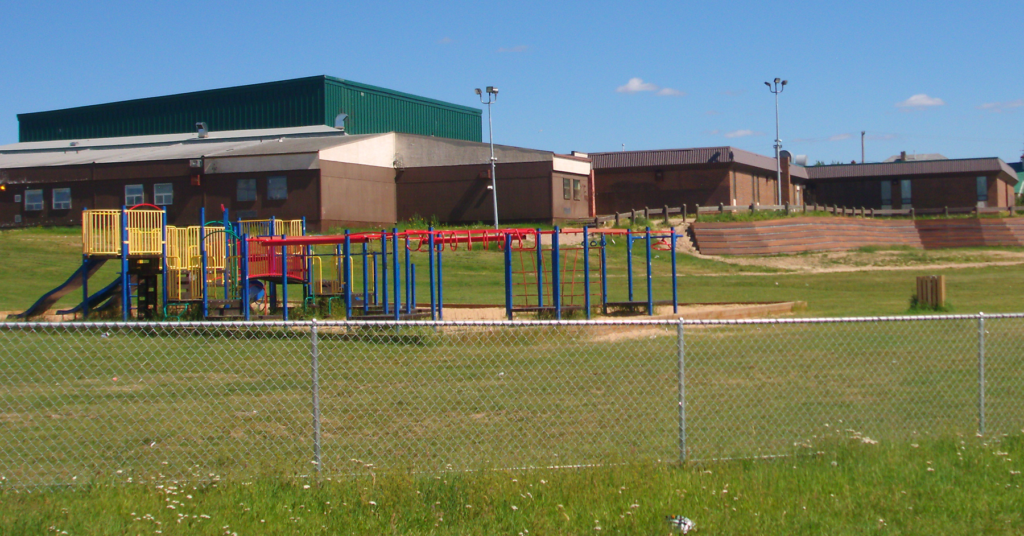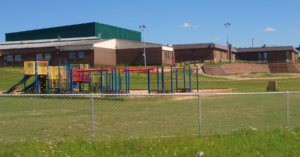
‘Not Up to Snuff’: Saskatchewan’s Approach to Online Learning Among Worst in Canada, Education Experts Say
Experts say Saskatchewan needs a provincial distance learning policy
Saskatchewan’s lack of a provincial distance education policy has made learning challenging for many students during the pandemic, education experts agree.
“Saskatchewan is not really up to snuff with other provinces and territories in terms of policy,” education researcher Kelsey Shields told a panel reflecting on lessons learned from the switch to online learning during the pandemic.
Shields, a doctoral student at the University of Athabasca and an administrator for the Good Spirit School Division, presented her research to a Zoom audience of teachers and community leaders this week.
Shields spoke to 16 teachers from across the province with experience providing online distance learning in either a full-time or blended capacity.
The findings underline a number of ways in which the education system broke down during the pandemic, impacting the quality of education outcomes for students and leaving teachers with difficult to manage workloads:
- The “digital divide”: Unequal access to technology, such as computers and wifi for both students and teachers, as well as inconsistent quality and compatibility of technologies made virtual learning challenging for some.
- Professional development for teachers: Not only utilizing technology, but also developing engaging lesson plans and providing emotional support for students.
- Communication and collaboration among school divisions: Teachers across the province should have had the same levels of funding and resources for students to receive consistent quality of education.
“Give it the respect that it deserves,” Shields explained. “Distance education deserves as much time and effort as a face to face environment. I think that’s a big shift we need to make.”
“Distance education has been part of education for a very long time but the light has now shone on it and there is a lot of value in it. It does deserve the time to prepare for and teach our teachers how to be successful with it.”
Here’s what a few of the other panelists had to say:
Lisa Hodson, Senior Administrative Staff at the Saskatchewan Teachers’ Federation noted that the STF took the initiative to develop their own distance learning policy prior to COVID, but accelerated the process when the pandemic hit. The policy will be implemented next year:
“What teachers have been doing this past year — and what they have been doing in the spring — is probably not sustainable for teachers. Teachers are exhausted and they’ve worked really really hard this year because they care about students and care about their success. The boundaries of the workday and all of those things, we’re going to have to work those things out and settle on something that becomes reasonable, manageable and a positive experience for students and teachers alike.”
“There’s a huge need for resources, professional development, research, and information on all of this. We’re just really at the start of a lot of work that is to come. Technology is a huge part of education and it’ll just keep getting bigger so to stay on top of it is a pretty big task.”
Jay Wilson, a University of Saskatchewan education professor, also emphasized the need for the provincial government to step-up and develop a distance learning policy to ensure all teachers receive consistent training:
“There is some really excellent expertise. There are some great institutions in the province doing distance learning – think of the work that Sun West has done in particular – they have been really innovative. Part of this is making sure everyone gets along and plays nice and shares but also that we are communicating around this so we do have a provincial policy.
“I’m really happy to hear the STF is putting some stuff together because we are lacking.”
“It’s a way to maybe bring together, to be more consistent, to have a province-wide approach to do all the good things. What are learning in terms of better teaching and instruction? Again there are a lot of challenges but always opportunities in every situation like we’ve been through.”
Jay Salikin, STF’s Senior Manager for Virtual Programs and Services, emphasized that all teachers and students need to have equal access to technology for distance learning to be successful;
“What we learned trying to provide professional learning for teachers was that not everybody had the same access. We had school divisions where teachers still had to travel to school because they didn’t have adequate access in their homes – and that’s the teachers so you can imagine the students they’re teaching are probably in the same boat.”
Some school divisions were able to [say], “Hey, we’re gonna redo these library computers anyways, let’s give them to students.” Not every school division had that opportunity.
We need to advocate for resources and funding to make sure we can continue to learn from what we’ve learned.”
Our journalism is powered by readers like you.
We’re an award-winning non-profit news organization that covers topics like social and economic inequality, big business and labour, and right-wing extremism.
Help us build so we can bring to light stories that don’t get the attention they deserve from Canada’s big corporate media outlets.
Donate



